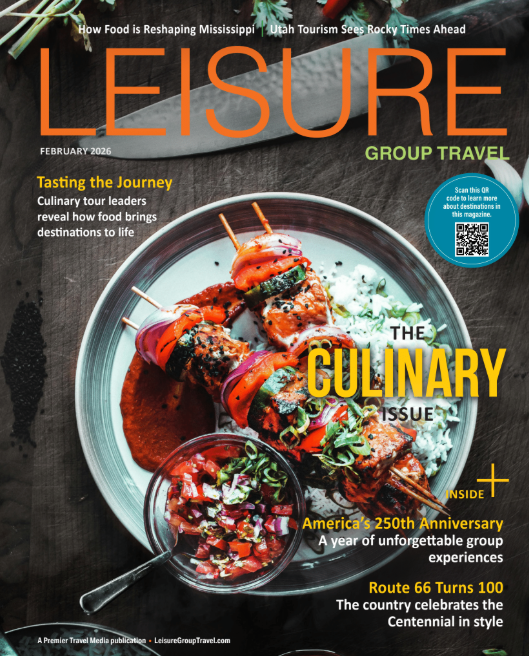Why would a person travel with a church group when there are so many companies that offer tours and cruises to any place in the world, from the Arctic Circle to Antarctica?
To answer that question, we must look at the purpose and objective of a faith travel ministry. The purposes of church travel programs are as varied as the types of cookies in a bakery and which direction you decide to head will be based on a number of different factors such as who’s leading the effort, your primary and tertiary objectives, and how travel aligns with the overall mission of your church.
Let’s look at some major reasons why congregations travel together:
- Building a stronger bond between active members who may not interact on a regular basis due to age, marital status, committee involvement or focus. People can be so busy involved in their own lives and volunteer projects in your organization. Take them out of the normal setting and get them on a bus, train, plane or ship and suddenly they will have time to enjoy each other’s company. This will lead to even more active church members as they share their projects and get other members to join.
- Bringing together the generations into your church, away from the confines of the church pews and age-related classes, worship times or interests, to join together on spiritual trip. This can take place on a one-day tour to share interests or longer trip where the generations will have time to bond and develop an understanding of each other.
- Supporting missions or missionary organizations and families by traveling to different parts of the world and participating in projects that will encourage the missionaries. Helping others will give your members a great feeling of fulfillment. Visiting missionaries in the field opens doors of understanding that could never be experienced from letters, PowerPoints or videos. You see firsthand the joys and challenges they experience daily and how you can support and encourage them on site or back home.
- Planning and facilitating retreats for missionaries including child care, teaching, fun and relaxation. Allow your members time to take a break and refresh their body and soul. Everyone needs to step away from normal day-to-day activities and enjoy fellowship with others in a peaceful setting. Retreats allow this to happen in a short amount of time.
- Voluntourism hands-on projects. These could be as simple as pulling weeds in gardens to building schools, health clinics or churches. Travelers today, no matter the age, want to leave more than their dollars in the destination—they want to leave their mark. There is no age that cannot participate in these projects because of the variety of things you can do. Anyone can read a child a story in an orphanage or listen to them tell you their story. Whether it’s sharing a meal, bringing small gifts, painting a wall or sewing new curtains, these work projects lead to tearing down the old walls of misunderstanding other cultures.
Next Steps
If you are curious about how a travel ministry could benefit your church, gather key stakeholders to discuss the above points. At the same time, ask them to bring along someone who’s not embedded in your church’s activities and mission to gain their unique, outside perspective. This inside-out approach will better ensure that you are getting a fair analysis of those who are committed to your cause and how a travel ministry may influence those who are not as involved in your church as you’d like them to be.
From Idea to On-Tour
If you decide to move forward, you’ll find many domestic destinations offer spiritual experiences—at retreats, churches, shrines and museums, for instance. There are numerous Catholic shrines in the U.S. that can be visited by your parish. Many states have sites that hold interest for faith-based tour groups: historical chapels and churches, sculpture gardens, museums and libraries (Billy Graham Library), conference centers—The Cove, Gloretta and Sandy Cove—to name just a few.
Further afield, your group may decide to do a pilgrimage, traveling to destinations that are important to your faith. Foreign destinations like Israel, Greece, Turkey, Egypt and Jordan are important in the Old and New testaments. Europe is the birthplace of many denominations of today. A tour of Germany, France, Switzerland and Austria could focus on Reformation history, Anabaptist roots or Huguenot founders. Touring the United Kingdom will give you the foundations of Baptist, Methodist, Presbyterian and Episcopal denominations. Italy, Spain, France and Ireland have many important Catholic churches.
Cruises offer an ultimate fellowship opportunity for faith-based groups, with time on the ship to spend in conversation, reflection, meditation and study. Visits at the ports of call include opportunities to enjoy the beauty of God’s creation and might even allow a few hours visiting people and doing small volunteer projects.
Build Your Community
Planning faith-based trips will enhance relations between your members and at the same time, reach inactive members as a way to make them feel like a part of the group in a different and relaxed setting. Inviting non-members is great outreach to the community in general, and a positive travel experience can add to your church membership. Traveling with non-members can also widen your church’s cultural or ethnic boundaries. When you reach out to your church community and beyond, the travel destinations are endless. The tour can be to a region of interest to the cultural heritage of your hometown, a sister city in Europe, a culinary destination based on the ethnic background of the community or a place of natural beauty.
Set up a travel fund that can be used for members who want to travel but cannot do so financially—singles, widows, seniors, and those less fortunate. This may be the most rewarding thing your organization can do in outreach. An example: A Bible college was offering a study and fellowship tour to Greece and Turkey following The Steps of St Paul. An elderly donor could no longer travel but wanted to give the gift of travel to a student, so she donated the travel cost for a deserving student to go in her place.
Give supporters the opportunity to catch the vision of your travel ministry by having the senior pastor or priest, youth pastor or priest, college president or head of the organization lead the tour. This allows people more one-on-one time where the future of the church or organization can be shared and travelers become an important part of that vision with their donations. This is a proven method for increasing engagement and giving.






